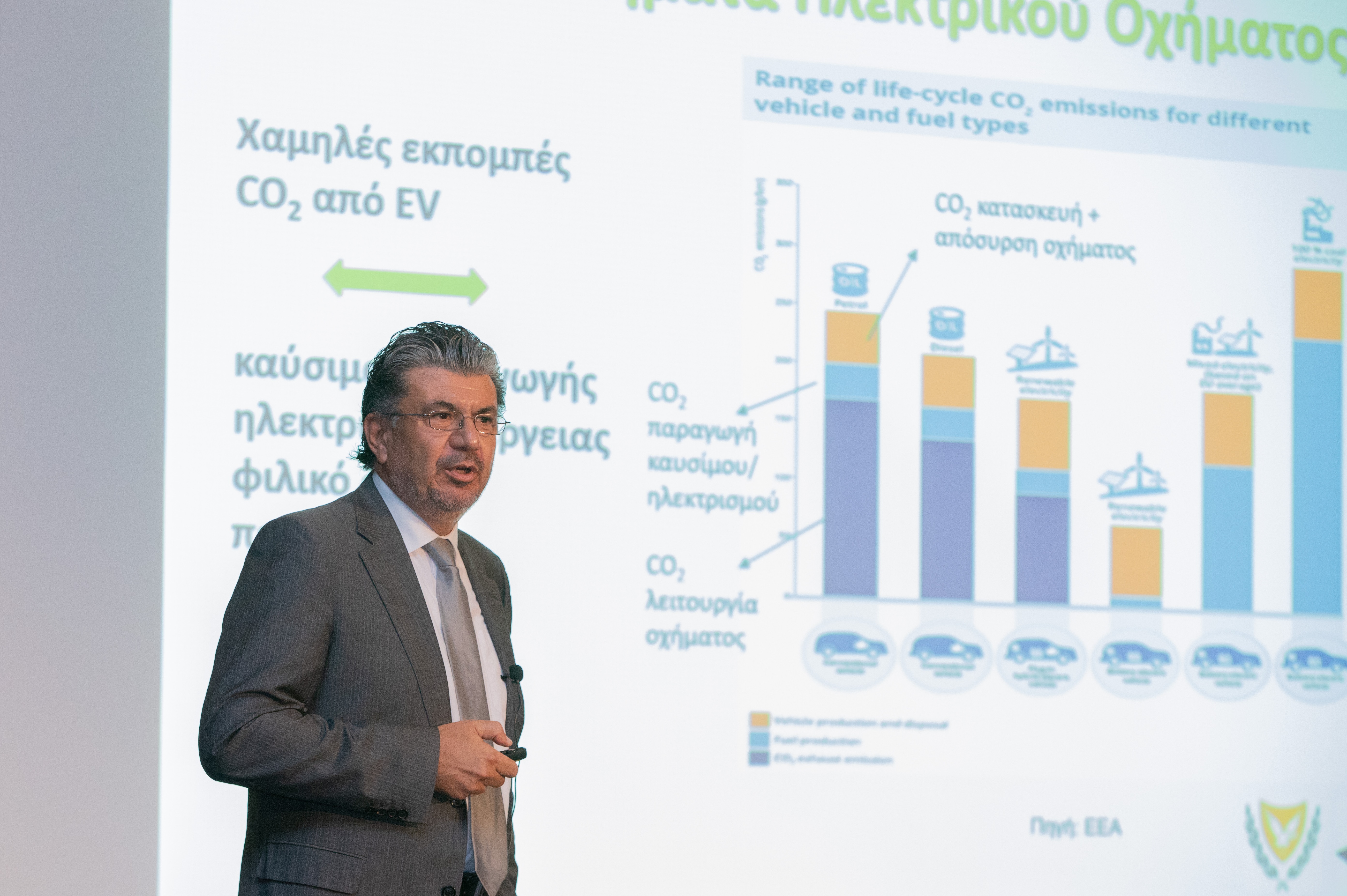
Cyprus is turning the page in the digital age era but there are still many steps in the path forward. This appears to be the general conclusion from Thursday’s conference on "Cyprus in the Digital Agenda," which was organised by Kathimerini newspaper and the SPP MEDIA Group and moderated by Michalis Sofocleous.
The aim of the conference was to raise key issues that form the foundation for the country's transition into the digital age. The discussion revolved around the need to invest in solar energy, the need to coordinate action on the Digital Agenda, how our everyday life changes with artificial intelligence and the importance of large data in the new era of advertising.

Mulling over a digital policy commissioner
It became clear through the discussion that there is no effective coordination in implementing a digital strategy. Despite the fact that a plan is in place, there is no agency or body that can coordinate the implementation and application of all the many different issues.
Interest in electrification is expected to be 53 times higher than today by the year 2030
This has left a void that has not gone unnoticed at the Presidential Palace, with the President of the Republic already looking into the possibility of setting up a position for a Digital Policy Commissioner. This individual would have executive powers and be responsible in overseeing the vision and implementation of digital policy in our country.
Energy Minister Yiorgos Lakkotrypis made the above statement during the conference along with admitting that the absence of a coordinating body has a deregulating effect on the changes that need to be achieved.
Homes of the future
One of the crucial questions is the issue of artificial intelligence and its implementation, said Mr. Lakkotrypis, explaining that artificial intelligence paves the way for what is essentially the democratisation of energy in such a way that the consumer moves away from the fringes of the market towards the centre.
That is, a home or small business can produce its own energy using the sun and store it either in batteries installed in the house or in an electric vehicle. Then a smart network through artificial intelligence will distribute the energy where it is needed, while being able to provide information and data on how much energy each home has produced and even calculating the tax on it. This allows each household to produce energy and manage its own affairs.
"This scenario is unavoidable, it may not happen tomorrow, but it will happen," said Mr. Lakkotrypis.

The challenge is to make the most of solar energy and also figuring out how to match its application with the cells inside solar panels on the roofs of buildings. From 2013 through now, 12,000 photovoltaic systems have been installed, while the application of net billing is on a similar trajectory in the near future. That is the ability of businesses and commercial properties to produce electricity through photovoltaic systems, not only to meet their own energy needs but also sell any production surplus to the Cyprus Electricity Authority and therefore generate income.
Electrification in its infancy
By 2025, automaker BMW's output powered by electric vehicles will reach 25 percent, said Sebastian Waldbauer, a company senior product manager, who stressed that the challenge is boosting the government’s stake in electrification as well as changing ways of thinking.
Stelios Himonas, the Permanent Secretary at the Energy Ministry and a Cyprus Digital Champion, explained the framework within which government incentives will be given to promote electrification. The most important ones are state subsidies for the purchase of electric or hybrid vehicles - including subsidies for the installation of a photovoltaic system in homes of electric vehicle owners, special pricing at EV charging points and subsidies for the installation of publicly accessible charging points, i.e., in municipalities and local communities.

But an official announcement on these incentives is not an immediate priority for the government, according to Dr. Himonas, who made clear that a pressing commitment currently is to meet transportation and environmental objectives with targets fast approaching in 2020.
What should be expected is the gradual adoption of some incentives. It is also generally understood that the trend in electrification will increase in the coming years with interest expected to be 53 times higher than today by the year 2030. Dr. Himonas added that electrification in Cyprus is currently in its infant stages.
The future of digital advertising
The founders of Avocarrot (now Glispa Global Group), George Makkoulis and Panos Papageorgiou, gave their own take on the prospects generated in the advertising industry, while speaking on the utilization of internet user data along with the limitations stemming from private data regulations.
They explained that advertising companies nowadays have a lot of power in their hands and also touched on the issue of election results that can be influenced by ads. The General Data Protection Regulation came to regulate this giant volume of data that appeared as a type of threat to the current business model, forcing digital advertising companies to redefine both approach and medium at their disposal to keep their momentum.
One way out could be native content, or paid advertising that is consistent with the function and profile of the medium in which it is presented. As reported by Ms. Tania Giakoumaki, General Manager at Bakers Digital Communication, a V+O Group company, as much as 74 percent of ad revenue is expected to come from native content.

During a conversation on advertising, it emerged that native content in Cyprus is still in its infancy while situations on the ground will ultimately set advertising trends in the coming years. The panelists included Athanasios Ellis, Chief Editor of Kathimerini English edition, George Theodotou who is Chief Marketing Director at Alpha Mega Supermarkets, Vassilis Papadopoulos, MTN Senior Manager of Innovation and New Business Development, Phil-Good Magazine’s Chief Editor Stavros Christodoulou, and Kathimerini editor-in-chief Michalis Tsikalas.
Fake News and the Commission
Fake news was the first topic at the conference lineup, with European Commission Chief Spokesperson Margaritis Schinas admitting that the European Union has often been the target of fake news stories.
Jivka Petkova, European Commission’s multimedia chief editor, gave specific examples of fake news stories, including one that claimed the European Commission had banned kebabs, children's balloons and French fries.
While the need to establish a set of guidelines and best practices was emphasized, it became clear that in sharp contrast to the issue of personal data protection, the Commission had not come up with a specific legislative framework that would provide for imposing fines on media outlets that reproduce fake news.
It is understood that an ongoing effort to coordinate policy on a communications strategy is under way.
"We feel alone in the fight against fake news," said Mr. Schinas.
At the same time, Alexis Papachelas, the executive director of Kathimerini Greece, underlined the need for finding the right tools on the internet to deal with fake news but without the average citizen losing his or her access to information.

The conference was organized by the SPP MEDIA Group and Kathimerini newspaper. MTN was the proud sponsor, with additional support from European University Cyprus, EY Cyprus, GCC, Cobalt Air, and Charalampos Pilakoutas Ltd.































